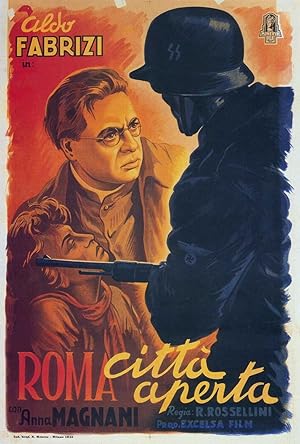
- HD 1080
- Runtime: 103m.
- Status: Released
1
- Languages: it
- Country: Italy
- Director: Roberto Rossellini
- Stars: Aldo Fabrizi, Marcello Pagliero, Harry Feist, Anna Magnani, Maria Michi
- keywords: nazi, rome, italy, resistance, fascism, drug addiction, curfew, desertion, neo realism, italian neo realism
- Production_studio: Excelsa Film
- Slogan: Our battle has barely begun.
- providers: Max, Max Amazon Channel, Criterion Channel
- The Rome, Open City is featured in the top rankings of 1945
- #2 in Top Drama Movies of 1945
- #1 in Top War Movies of 1945
In WWII-era Rome, underground resistance leader Manfredi attempts to evade the Gestapo by enlisting the help of Pina, the fiancée of a fellow member of the resistance, and Don Pietro, the priest due to oversee her marriage. But it’s not long before the Nazis and the local police find him.

